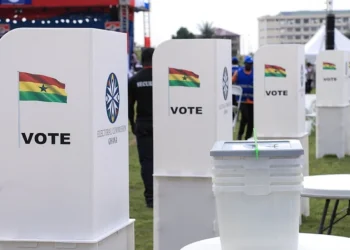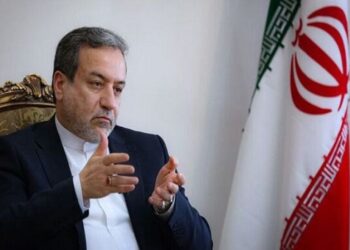Over the controversy of the missing Electricity Company of Ghana (ECG) containers, Political Editor, Wilberforce Asare, has insisted that the process of importing goods into the country is too highly regulated for such a loss.
Despite the shadow of doubt cast over Ghana’s import system, Wilberforce maintained that the port system itself can be relied upon, and blamed human interventions for the corruption and inefficiencies.
According to him, it was impossible for containers to leave the port without clear records of who authorized their release.
“The process of importing anything into our country is highly regulated. Nobody can import anything into this country without going through that regimented procedure”
Wilberforce Asare, Political Editor
He emphasized that the importation process follows a strict, structured path, where security agencies, particularly customs, play a critical role in verifying all accompanying documents before any goods are released.
“When I say regimented, I mean regimented because when you buy something outside, you have to put it on a vessel for the vessel to bring it to Ghana. The vessel owners hand over whatever they have brought to the security agencies – customs.
”It is customs that will do a comparison of the documents that the shipping company brought as against what you, the importer, have – packing list, bill of lading, all those things”
Wilberforce Asare, Political Editor

He explained how the clearance of goods at Ghana’s ports involves strict multiple layers of verification that cannot be bypassed, with the customs division ensuring that all paperwork aligns before authorizing the release of any container.
According to Asare, the ECG imports, whether they involved a thousand or three thousand containers, would have followed this same rigorous process without fail.
The numbers assigned to each container, the vessels they arrived on, and the consignee responsible for clearing them are all recorded in the port’s system.
“We know the vessels that brought it – one, two or three vessels, we know all those things. We know when it came to the port, those who were supposed to clear it, in fact, the consignees, the agency that was supposed to work on it – all those things are known”
Wilberforce Asare, Political Editor
This structured process, he argued, makes it impossible for containers to exit the port without records showing who cleared them.
Any deviation from this standard procedure, he suggested, would indicate deliberate interference by unscrupulous individuals with access to the system.
Who Released the ECG Containers?

Asare questioned how the ECG containers left the port, emphasizing that such an occurrence could not have happened without human intervention.
He noted that all channels and facilitators responsible for processing the containers’ clearance are all documented within the system and should be resorted to for the investigation into the case.
“So a container cannot arrive in Ghana and leave our ports without going through strict checks, nobody can tell me that”
Wilberforce Asare, Political Editor
He strongly dismissed any notion that containers could simply disappear from the port. If the ECG containers left the port unauthorized, those responsible for their release should be traced through the system, he said.
For him, the issue, he argued, is not whether the containers were released unlawfully but rather who authorized their exit.
Given the highly monitored nature of port operations, he maintained that the system itself contains the answers.
“Without those human interventions, the containers couldn’t have left the port,” he asserted.
As the controversy unfolds, Asare believes that the only way to determine how the containers exited the port is for the authorities to investigate the human elements involved.
The port’s digital tracking system retains a history of all transactions, listing the officials responsible for each step of the clearance process.
“If the containers left the port wrongly, the system over there knows the human interventions that were involved”
Wilberforce Asare, Political Editor
The matter raises critical concerns about accountability within Ghana’s port operations, reinforcing calls for greater transparency and stricter oversight to prevent unauthorized shipments from slipping through the system.
Wilberforce Asare urges the investigation is conducted properly so those guilty are brought to justice.
READ MORE: US-Ghana Trade Faces Uncertainty Amid 10% Tariff Imposition



















